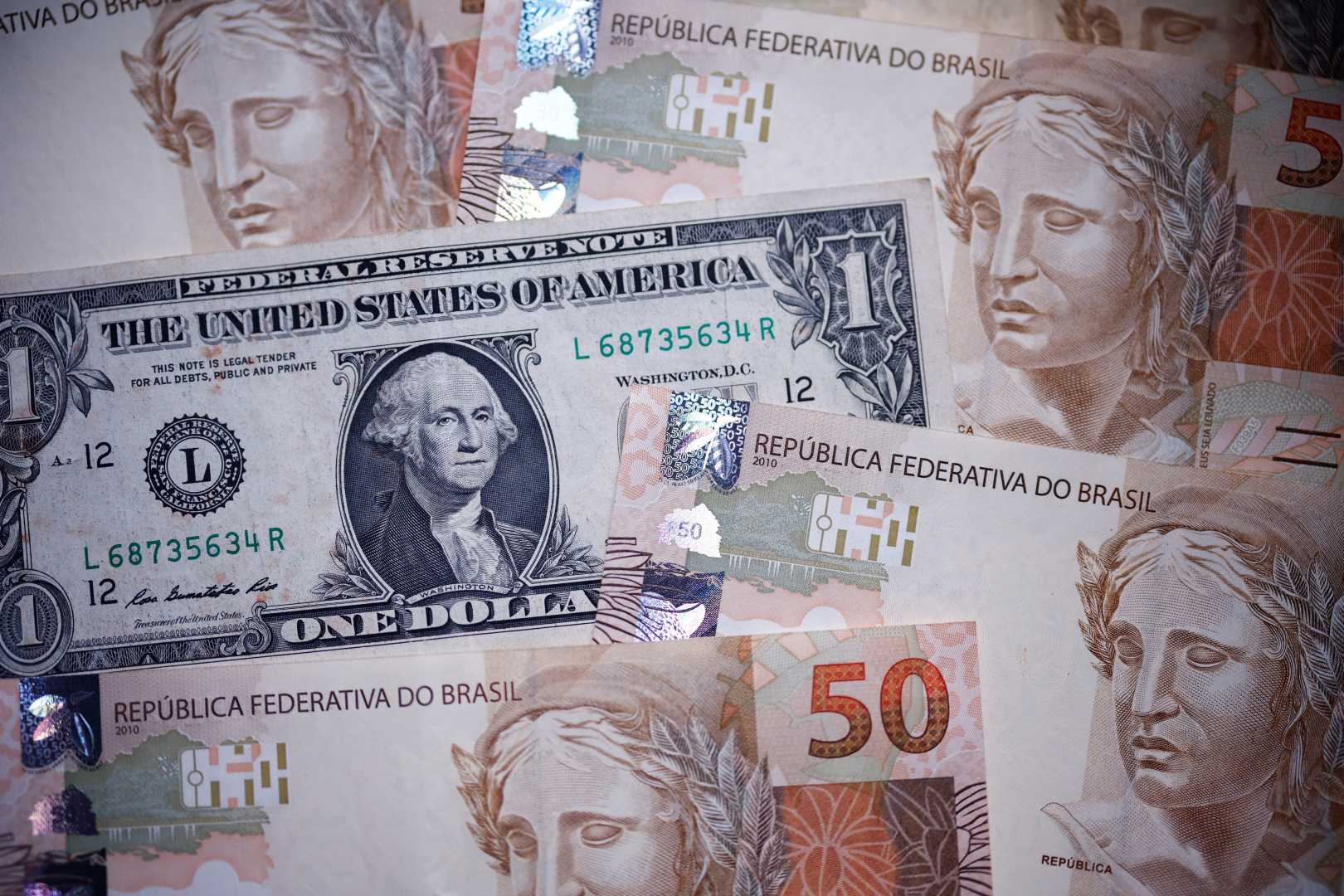Business
Dollar Rises Amid Market Uncertainty Over U.S. Tariffs

SÃO PAULO, Brazil — The Brazilian real weakened against the U.S. dollar on Wednesday, July 9, 2025, closing at R$ 5.503, a rise of 1.06%. Meanwhile, the Ibovespa, Brazil’s main stock index, dropped 1.31% to 137,480.79 points.
This market movement followed the release of the Federal Reserve’s meeting minutes and ongoing concerns over potential new tariffs announced by U.S. President Donald Trump. The market reacted negatively as investors digested the possibility of increased tariffs, particularly after Trump’s comments that Brazil has not been “good” for the U.S. and that punitive measures might be forthcoming.
Earlier in the day, the dollar had started to gain strength against the real, reversing a previous day’s decline of 0.59%. The commercial dollar was traded as low as R$ 5.4466 the day prior but reached up to R$ 5.698.
The trading session on the Ibovespa saw a significant turnover of R$ 22.2 billion. Analysts noted that after surpassing the 141,000-point mark for the first time in history recently, the market’s current decline reflects apprehension among investors about external conditions and profit-taking.
“The Ibovespa is testing an important resistance level of 140,000 points and investors are waiting for positive news to sustain the index at a historic level,” said Enrico Cozzolino, head of analysis at Levante Investimentos.
The new tariff structure, initially proposed at 10% for Brazil, was unveiled late on Tuesday and is expected to be implemented in August. This announcement followed a period of high tariffs on imports from various countries, as Trump asserted that such measures are necessary for economic fairness.
The Federal Reserve’s meeting minutes were also under scrutiny, as they detailed the committee’s decision to maintain interest rates between 4.25% and 4.50%. Some committee members suggested that interest rate cuts could begin later this year, even in light of potential tariff impacts.
“Inflation is currently above our target and while it has declined considerably, it remains a concern,” stated Jerome Powell, the Fed’s chair. He emphasized that the committee is prepared to adjust monetary policy as needed to achieve economic goals.
As domestic concerns rise, the Brazilian government is attempting to address fiscal policies related to the IOF (Financial Operations Tax), with discussions involving Finance Minister Fernando Haddad and legislative leaders. These talks follow a Supreme Court ruling that previously blocked a decree related to tax hikes.
The debate about increasing the IOF rate is crucial for meeting the government’s fiscal targets, aimed at eliminating the public accounts deficit and achieving a primary surplus by 2026.
As market volatility continues, traders are closely monitoring developments both in U.S. tariffs and Brazil’s domestic economic policies, anticipating significant ramifications for upcoming sessions.












